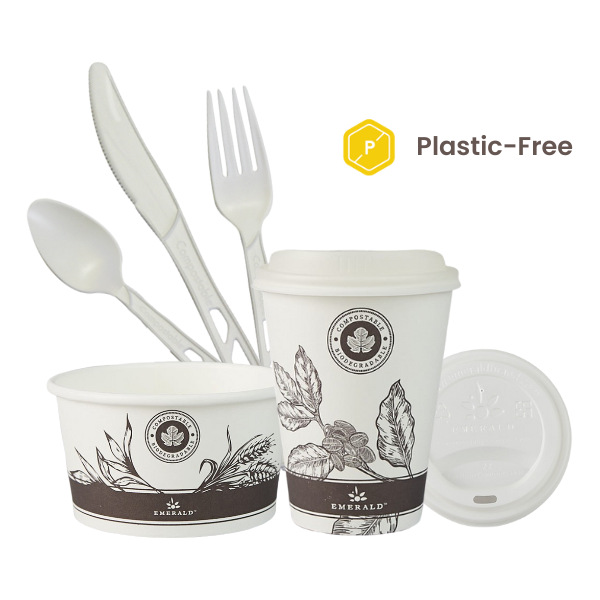Corn Starch Lining vs Plastics
Disposable cups, plates, cutlery and more have become an essential part of our daily lives, especially in fast-paced environments such as offices, cafes, and parties.
Plastic lining has been the standard choice for many years due to its durability and ability to prevent leakage. However, its environmental impact is significant.
In an effort to reduce plastic waste, alternatives like corn starch lining have emerged as a potential solution.

Issues With Plastic Lining
Plastic lining has been the standard choice for many years, but its environmental impact is significant. Plastic is derived from fossil fuels and takes hundreds of years to decompose. Even cups with plastic linings take hundreds of years to decompose, leading to accumulation in landfills and oceans. This results in pollution, endangering wildlife and ecosystems.
Recycling plastic-lined cups can be challenging due to the complexity of separating the plastic lining from the paper cup material. Most recycling facilities are not equipped to handle this process efficiently, leading to the majority of plastic-lined cups ending up in landfills or incineration facilities.
Benefits of Corn Starch Lining
In an effort to reduce plastic waste, alternatives like corn starch lining have emerged as a potential solution.
Corn starch lining is a biodegradable and compostable alternative to plastic lining in disposable items meant for hot food or liquid. It is derived from corn, a renewable resource, making it a more sustainable option. The corn starch undergoes a process to convert it into a polymer that can be used as a lining material, provides a barrier against liquids while still allowing the item to be composted.
Corn starch lining offers a more environmentally friendly solution compared to plastic lining. Since it is made from a renewable resource, it reduces our dependence on fossil fuels. Additionally, corn starch lining is biodegradable and compostable, meaning it can break down into organic matter under the right conditions, leaving no harmful residues behind.
Corn starch lining also provides comparable functionality to plastic lining in terms of preventing leakage and maintaining liquid temperature. It is heat-resistant and can withstand hot liquids without compromising integrity.
Corn starch-lined items may carry certifications such as “compostable” or “biodegradable” if they meet certain standards set by regulatory bodies like the Biodegradable Products Institute (BPI) or the European Bioplastics Association (EUBP). These certifications ensure that the cups meet specific criteria for compostability.
